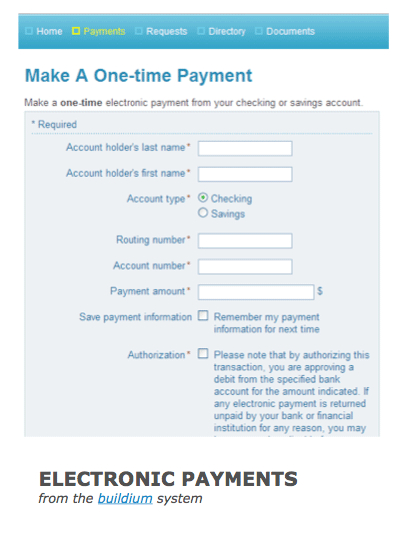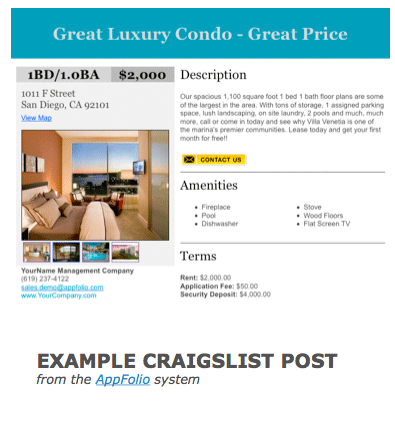Rental Property Management Software Buyers Guide
This detailed guide will help you find and buy the right rental property software for you and your business.
Last Updated on November 20, 2023Here's what we'll cover:
What is rental property management software?
What are the common features of rental property software?
What are the benefits of rental property management software?
What are the market trends of rental property management software?
What is rental property management software?
A rental property management system is software that enables rental property owners and managers to execute a considerable number of essential daily tasks--including managing and tracking tenant information, accounting and billing, maintenance, and posting vacancies online--to help all operations run smoothly for a given property.
Rental property management software also generates reports on activity like monthly rent payments, income, and expenses, to help you monitor the financial health of your property.
What are the common features of rental property software?
Software for rental properties manages one or more of five general functions:
1. Applications and tenant information
Tenant portals enable online rent payment, maintenance request submissions and even community forums for events or public notices to improve communication.
Customizable lease forms and easy document distribution help standardize the leasing process and make sure all required documentation is completed and archived.
Resident screening lets you evaluate applicants’ credit history, criminal activity, rent history and income by initiating these checks from within your software.
Store vital tenant information, such as resident contact information, late fee reminders and work order history.
2. Rent roll and payments
Online rent payments eliminate the hassle of paper checks and trips to the bank.
Utility metering calculates and bills for tenant consumption of metered utilities so you don’t have to check and record manually.
Automatic alerts inform landlords and tenants of delinquent rent payments.

3. Vacancy management
Automated vacancy postings allow new properties to be listed faster and more easily, reducing the time it takes to fill vacant units.
Automated notifications inform you about upcoming lease expirations.
Vacancy planning provides proactive identification of vacancies and under-utilized locations.
Space tracking helps manage the configuration of available space for move-ins and move-outs.

4. Maintenance record keeping
Maintenance request alerts ensure all maintenance issues are taken care of promptly.
The ability to prioritize issues, work assignments, requests and other objectives that require immediate attention helps increase efficiency.
Maintenance staff management allows you to easily delegate tasks.
Service contract storage lets you easily reference records.
5. Financial accounting and reporting.
General ledger, income statements, balance sheets and accounts payable and receivable help you keep tabs on revenue, expenses and the overall financial health of your portfolio.
Payroll management allows you to calculate withholdings for state and local income taxes.
Tracking budgets against actuals allows you to view current revenue and forecast future cash flow.
What are the benefits of rental property management software?
Rental property software offers benefits such as cost and time savings, real-time data access, security and scalability. Landlords who are busy or reside at a different location can use these systems to manage multiple properties from their smartphones or laptops.
The software can be installed on-premise, hosted in the cloud or used on a mobile application. Cloud-based solutions and mobile applications enable owners to monitor their properties from any location. Using a single application, owners can check on multiple properties, review tenant complaints, accept payments and receive property alerts online.
Rental property software keeps a record of all communication and transactions made through the application. This can help prevent disputes between tenants and owners in situations when property owners forget to keep records about payments due, excess amounts paid previously and lease termination dates.
Rental property software also enables tenants to submit requests and track their status online. They can print and download documents, such as lease agreements, rent receipts and other account information by logging in to the client web portal. The online payment processing feature saves time and effort, both for tenants and landlords. Users can also add notes and details about offline transactions.
Finally, these systems can alert owners about issues such as pending tax and insurance payments, incomplete maintenance jobs and document renewal. This helps landlords remain compliant with all federal regulations and standards.
What type of buyer are you?
Before deciding on purchasing a solution, you should determine what type of buyer you are, as this will help you narrow down your requirements.
Property owners (1 - 9 units): Though managing a smaller number of properties can be done using the traditional methods, an automated system will help ensure accuracy, standardization and better maintenance of records and documents. It will also be scalable in case you plan to increase the number of units you manage in the future.
Owners and property managers (10+ units): If you are a solo owner or property manager in charge of multiple sites, rental software can help you monitor all of your properties from a centralized location, without having to visit the locations frequently. A rental management solution that supports electronic payments helps minimize difficulties related to rent collection, check processing, repair work tracking and documentation.
Property management companies/enterprise owners (50+ units): If you own a rental business and have to manage multiple residential or commercial properties, your best bet is a solution that offers a wide range of features and integrates with third-party software, such as QuickBooks or other accounting and CRM software. Such a solution will help automate important property management tasks such as screening tenants, collecting rent and managing your finances. It can also help track vacancies, manage renewals, create reports and maintain regulatory compliance.
Long-distance property owners: Rental software is especially helpful for owners who reside in foreign countries and rent out their properties. Such buyers should seek a solution that enables them to manage and track rentals, send notifications to tenants and receive payments without incurring additional travel or communication costs.
What are the market trends of rental property management software?
Integrated suite vs. point solutions. Integrated suite rental management software combines a range of applications such as accounting, record-keeping and maintenance tracking into one system. In contrast, rental property manager software point solutions serve one specific function (such as processing online rent payments) and are either used in conjunction with other software or in a standalone capacity.
Size and number of properties. Certain rental tracking software systems are better suited for a large number of units or properties with mixed portfolios, whereas others are best for single properties with only a small number of units.
Web-based vs. on-premise deployment. Web-based (or “cloud”) rental property management systems store the application and all associated data online and are accessible from anywhere with Internet access. On-premise systems require software to be installed on a computer or server in your facility.
Mobile-optimized. Some rental property manager systems are accessible via tablet or smartphone, making it easy to view, enter and track data on-the-go.